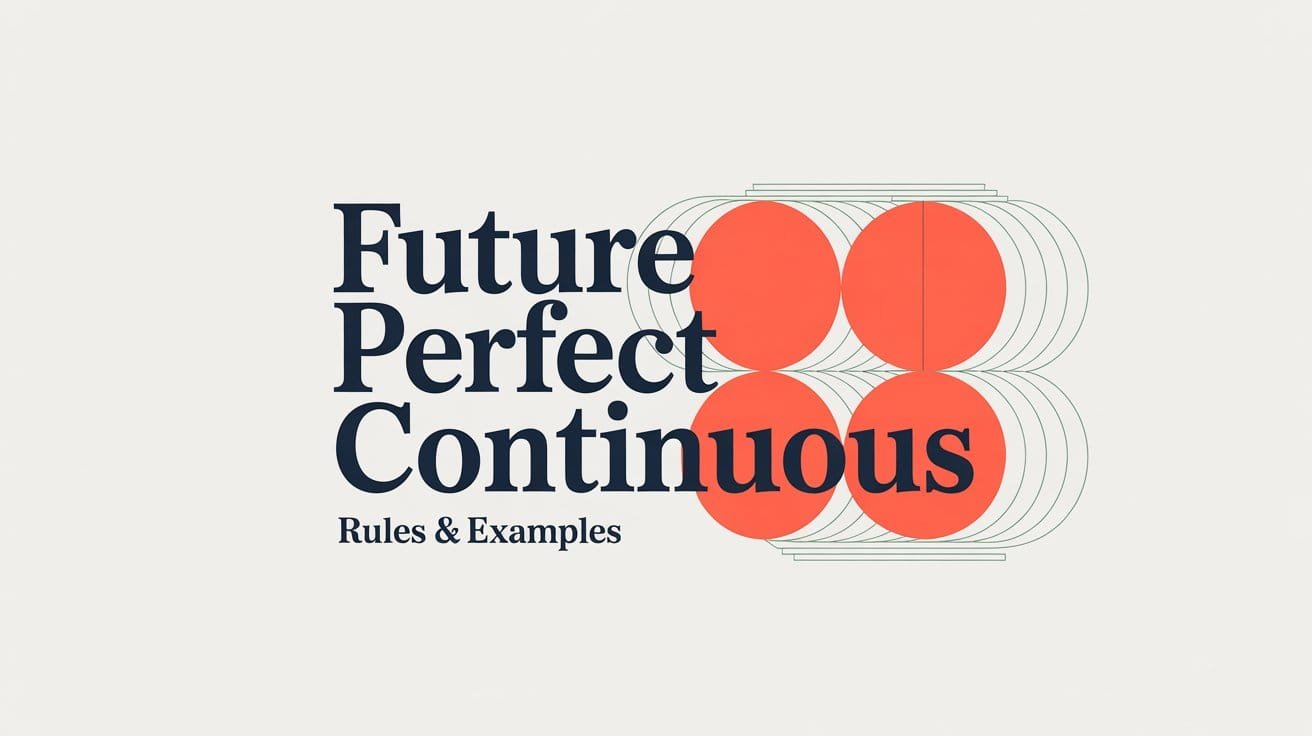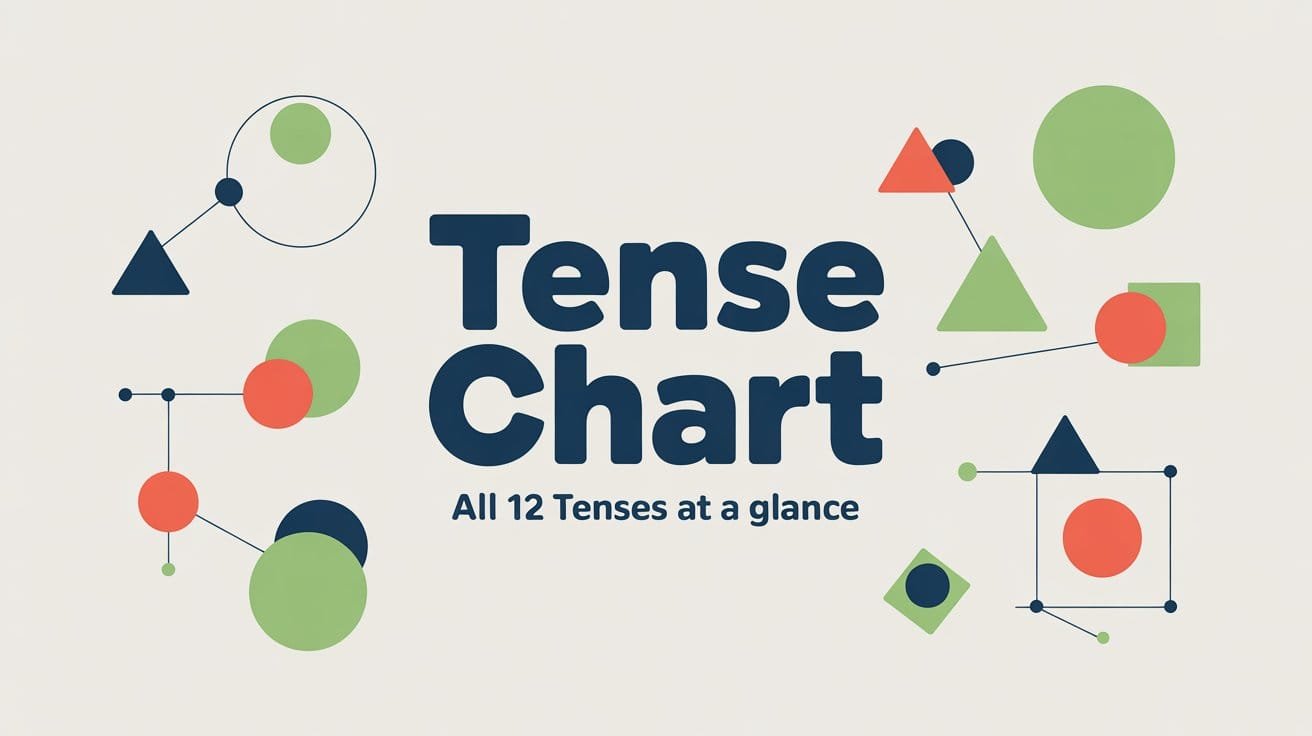The future perfect continuous tense is used to describe an action that will be ongoing for a period of time before a specific point in the future. It shows how long something will have been happening up until that moment. For example: “By next month, she will have been working here for five years.” This sentence highlights the duration of her work before the specified time.
The future perfect continuous tense is especially useful when you want to emphasize time, effort, or continuity leading up to a future point.
Structure of the Future Perfect Continuous Tense
The future perfect continuous tense is formed using will have been + verb-ing. It’s used with all subjects and stays consistent across sentences.
Affirmative Sentences
Structure:
Subject + will have been + verb-ing
Examples:
- I will have been studying for six hours by the time the class ends.
- She will have been living in that city for a decade by next summer.
- They will have been working on the design since March.
- We will have been traveling for two weeks by the time we return.
Negative Sentences
Structure:
Subject + will not (won’t) have been + verb-ing
Examples:
- He will not have been using the system long enough to spot the issue.
- I won’t have been driving for a full year until September.
- They won’t have been training consistently by the deadline.
- She will not have been managing the team by that point.
Interrogative Sentences
Structure:
Will + subject + have been + verb-ing?
Examples:
- Will you have been working here for five years by January?
- Will she have been studying long enough to pass the exam?
- Will they have been living abroad when the new rule takes effect?
- Will we have been waiting long before the gates open?
Usage of the Future Perfect Continuous Tense
This tense helps you talk about actions that will be ongoing up to a specific point in the future. It focuses on the duration of an activity rather than just its completion.
To Show Duration Before a Future Point
Use it when you want to express how long something will have been happening by a certain time.
Examples:
- By next week, she will have been teaching for ten years.
- He will have been running the company for six months before the new director joins.
- They will have been rehearsing all morning by the time the audience arrives.
To Emphasize Time Spent on an Ongoing Activity
This use highlights the effort, routine, or consistency of an action.
Examples:
- I will have been working on this report for hours before the meeting starts.
- You will have been waiting for over an hour when the train finally arrives.
To Provide Background for a Future Action
It sets the stage by explaining what will have already been happening when something else occurs.
Examples:
- She will have been staying with her cousin when we call.
- They will have been driving all night before reaching the city.
Common Time Expressions with the Future Perfect Continuous
This tense works closely with time expressions that emphasize duration and a future endpoint. These phrases help make the time frame clear.
Common Expressions:
- for
- since
- by the time
- before
- when
- in [a period of time]
- by [a future time or event]
Examples:
- I will have been practicing for three hours before lunch.
- By the time you get here, we’ll have been waiting a while.
- He’ll have been working on the engine for most of the day.
- They will have been walking since sunrise.
Practice Tips for Using the Future Perfect Continuous Tense
To get comfortable with this tense, focus on future time frames and how long actions will have lasted by then. This tense works well for expressing effort, time invested, or preparation.
Use Future Time Points to Anchor Your Sentences
Think of a future deadline or event, and describe what will have been happening until then.
Examples:
- By 8 PM, I’ll have been answering emails for three hours.
- By the time the guests arrive, we’ll have been decorating all afternoon.
Practice with “for” and “since”
These words help you explain the exact duration of the action.
Examples:
- He will have been studying for six months by the time of the exam.
- She will have been living here since June.
Describe Long-Term Habits or Commitments
Use this tense to reflect on effort or consistency over time.
Examples:
- By this December, I’ll have been saving for this trip for nearly a year.
- They’ll have been working on the prototype for weeks before testing begins.
Form Polite Questions to Discuss Future Duration
Ask about how long someone will have been doing something by a future time.
Examples:
- Will you have been managing the team for a year by March?
- Will she have been volunteering long enough to apply for the certificate?
FAQs About the Future Perfect Continuous Tense
What is the Future Perfect Continuous Tense and when is it used?
The Future Perfect Continuous Tense describes an action that will have been ongoing for a specific duration by a certain point in the future. It’s often used to emphasize the length of time an activity has been in progress before another future event occurs. Example: By next month, she will have been working here for five years.
How do you form the Future Perfect Continuous Tense?
The structure is: will have been + present participle (verb + -ing). This formation remains consistent across all subjects. Example: They will have been traveling for 12 hours by the time they arrive.
What is the difference between Future Perfect and Future Perfect Continuous Tenses?
Future Perfect Tense focuses on the completion of an action by a certain future time. Example: She will have finished the report by 5 PM.
Future Perfect Continuous Tense emphasizes the duration of an ongoing action up to a specific future point. Example: She will have been working on the report for three hours by 5 PM.
Can we use “shall” in the Future Perfect Continuous Tense?
Yes, “shall” can be used, particularly in formal British English, and typically with the first-person pronouns I and we. Example: I shall have been studying for three hours by the time you arrive.
What are some examples of Future Perfect Continuous Tense sentences?
By the end of this year, I will have been living in London for a decade.
She will have been practicing the piano for two hours by noon.
Will they have been waiting long when we get there?
We will have been discussing the project for over an hour by the time the manager joins.



